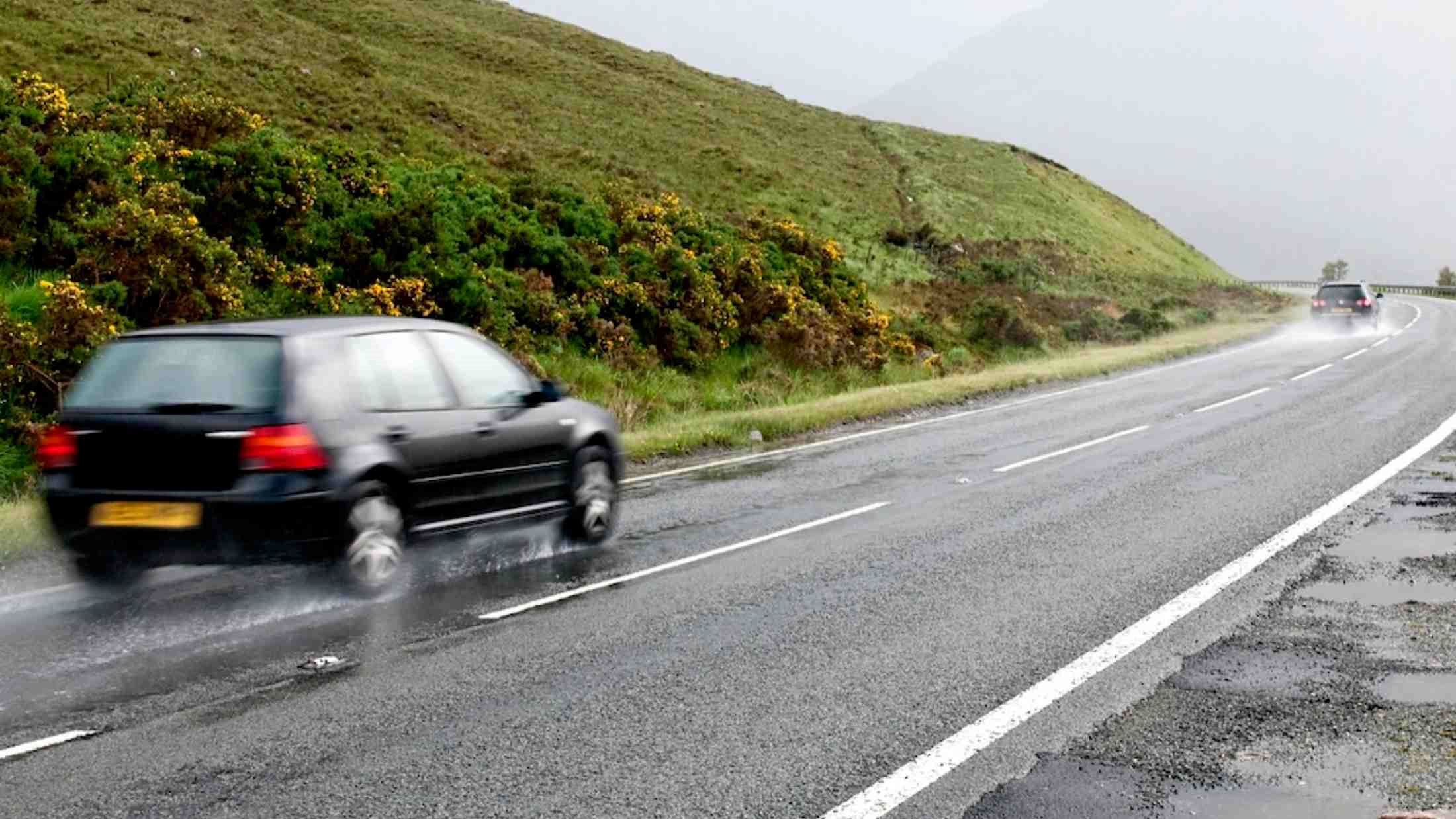Strong winds can be a major challenge when it comes to driving safely – especially if you're travelling in a high-sided vehicle or towing a trailer.
Driving through high winds can be an uncomfortable but common experience in the UK. On the rare occasions when we see storm force winds hit Great Britain, it's far safer to postpone your trip until the winds have died down.
Less extreme gales and storms might not necessarily stop you from getting behind the wheel though. While it’s important to watch out for debris like fallen branches, the biggest challenge is adjusting your driving to suit the windy weather.
In this guide:
Vehicle types
Different vehicles are affected by wind in different ways. Modern 4x4s are vulnerable to crosswinds, while low-slung aerodynamic coupés are well-suited for powering through strong gusts.
High-sided vehicles can be pushed sideways when strong gusts hit them. Drivers will need to react and steer quickly to compensate.
Driving tips
When driving through a storm, strong gusts will likely buffet your car. Always grip the wheel firmly and reduce speed before bends. There could be a slow-moving vehicle or debris, just around the corner.
Open ground and bridges are more prone to sudden gusts than urban areas. Remember to watch out for signs of incoming gusts, like:
- the vehicle in front buffeting
- the swaying of trees up ahead.
Keep a safe distance from high-sided buses or trucks. They can create turbulence, reducing the stability of smaller vehicles around them.
If possible, try and plan your journey to avoid small, narrow roads. These are more likely to be blocked by fallen trees or debris than larger main roads.
Finally, remember to give cyclists and motorcyclists a wider berth than usual, as they’re easily buffeted by side winds.
Towing
If you're towing a trailer or caravan, the risks posed by high winds are worse.
Cancel any travel plans involving a trailer if weather reports predict gales. The bracket or tow bar that connects a vehicle and its trailer is a vulnerable pivot point.
Travel more slowly than usual to help stop your trailer from jack-knifing or snaking from side to side.
Don't be tempted to substitute a trailer for a roof box. They’re particularly bad in crosswinds, as they're not very aerodynamic and raise a vehicle’s centre of gravity.
Your insurance
Get to grips with the ins and outs of your car insurance before windy weather hits so you know exactly what you’re covered for if the worst happens.
Already an AXA customer? Visit your online account to check your policy documents today. While you’re there, check your details are up to date, too. If your information isn’t right when you go to make a claim, we might not be able to pay it in the way you’d expect.












